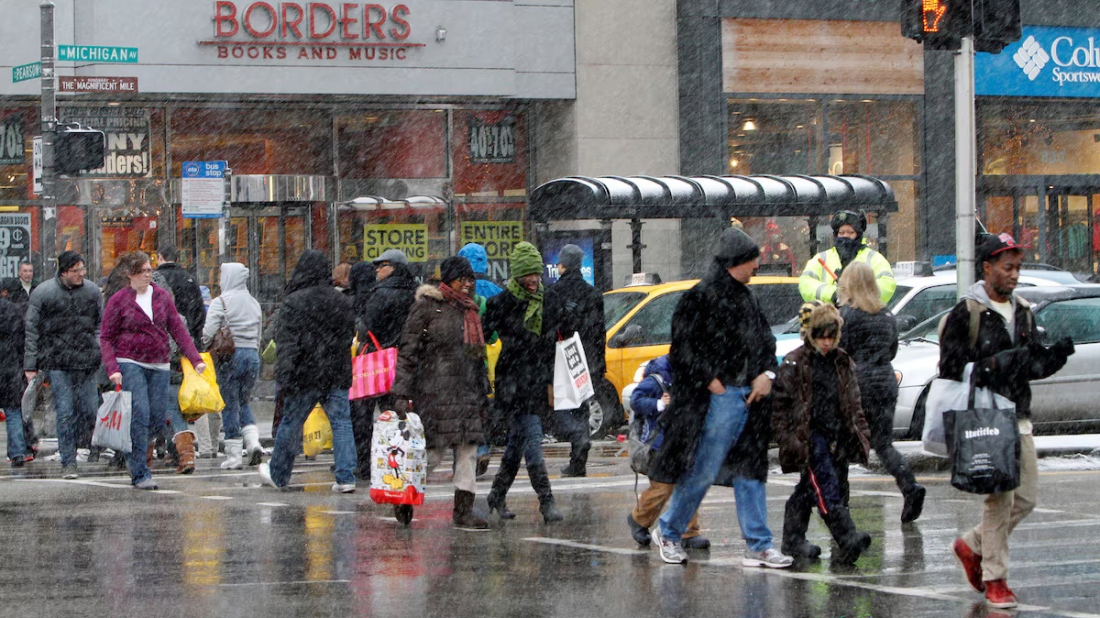Ramadan amid crisis: hunger, displacement and hope in Gaza
For many Palestinians, the holy month of Ramadan is being observed amid hunger, displacement and uncertainty. Families are relying on humanitarian aid...

Retailers like Walmart are using advanced weather data to shape local promotions and inventory, adjusting prices on seasonal items like sunscreen and winter gear. New tools help companies plan amid unpredictable weather patterns driven by climate change.
Retailers like Walmart are using weather analytics to navigate shopping trends affected by unpredictable conditions. Once limited to inventory planning, weather data now guides promotions and regional advertising. For example, Walmart discounted sunscreen earlier than usual, considering forecasts for a wetter autumn, according to Kirby Doyle of Beiersdorf, Walmart’s supplier.
Weather consultancies such as Meteonomiqs, Planalytics, and Weather Trends International are leveraging cloud technology to process large datasets as climate-related weather volatility rises. The National Retail Federation recently advised retailers to focus more on weather data in planning.
New pricing tools may soon emerge as Planalytics and BearingPoint develop software that incorporates weather trends into pricing decisions. "While weather can't be controlled, analytics and pricing can," noted Ryan Orabone of BearingPoint. Retailers like Tractor Supply also use this data to adjust inventory, as they rely on cold weather for Q4 success.
Retailers sometimes misinterpret data; in May, Lowe’s CFO cited cool, wet weather as a factor in weak sales, although it was actually one of the hottest Mays on record, according to Bill Kirk from Weather Trends.
Iran’s Supreme National Security Council Secretary Ali Larijani said the United States could evaluate its own interests separately from those of Israel in ongoing negotiations between Tehran and Washington.
Cuba’s fuel crisis has turned into a waste crisis, with rubbish piling up on most street corners in Havana as many collection trucks lack enough petrol to operate.
Norway is holding a commanding lead in the medal standings with 12 golds and a total of 26, with Italy having an historic performance on home soil on the ninth day of the Milano-Cortina Winter Olympics on Sunday (15 February).
Iran’s Revolutionary Guards navy held military exercises in the Strait of Hormuz on Monday (16 February), state-linked media reported. The drill took place a day before renewed nuclear negotiations between Tehran and Washington in Geneva.
Iran is pursuing a nuclear agreement with the U.S. that delivers economic benefits for both sides, an Iranian diplomat was reported as saying on Sunday (15 February), days before a second round of talks between Tehran and Washington.
The administration of U.S. President Donald Trump on Thursday (12 February) announced the repeal of a scientific finding that greenhouse gas emissions endanger human health, and eliminated federal tailpipe emissions standards for cars and trucks.
Tropical Cyclone Gezani has killed at least 31 people and left four others missing after tearing through eastern Madagascar, the government said on Wednesday, with the island nation’s second-largest city bearing the brunt of the destruction.
Rivers and reservoirs across Spain and Portugal were on the verge of overflowing on Wednesday as a new weather front pounded the Iberian peninsula, compounding damage from last week's Storm Kristin.
Morocco has evacuated more than 100,000 people from four provinces after heavy rainfall triggered flash floods across several northern regions, the Interior Ministry said on Wednesday.
Greenland registered its warmest January on record, sharpening concerns over how fast-rising Arctic temperatures are reshaping core parts of the island’s economy.
You can download the AnewZ application from Play Store and the App Store.

What is your opinion on this topic?
Leave the first comment